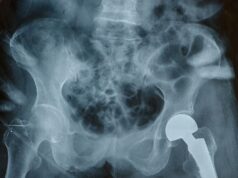Ethical considerations play a crucial role in orthopaedic surgery, guiding surgeons in making informed, patient-centered decisions. Various articles and guidelines address the ethical challenges orthopaedic surgeons face, emphasizing the importance of principles such as autonomy, beneficence, non-maleficence, and justice.
Informed Consent Process
One key area is the informed consent process, which is vital in ensuring patient autonomy. Hershfeld et al. discuss the barriers to adequate informed consent and highlight the need for standardized measures to ensure patients fully understand their treatment options and the associated risks and benefits. They suggest that formal training for providers on the informed consent process can help preserve patient autonomy and improve the quality of care provided (JBJS).
Ethical Responsibilities in Caring for Vulnerable Populations
Additionally, the ethical responsibilities of orthopaedic surgeons extend to the care of vulnerable populations, such as incarcerated patients. Peairs et al. explore the unique challenges in providing orthopaedic care within the correctional health system. They apply ethical principles to discuss how surgeons can better navigate these challenges and advocate for improved policies to bridge gaps in care (JBJS).
AAOS Guidelines on Ethics and Professionalism
The American Academy of Orthopaedic Surgeons (AAOS) has also issued various opinions on ethics and professionalism. These include guidelines on relationships with the industry, sexual misconduct, and the care and treatment of medically underserved populations. These statements provide aspirational advice to help surgeons navigate complex ethical situations and uphold the highest standards of patient care (AAOS).
Research on Ethics in Orthopaedic Surgery
At Johns Hopkins, research led by Dr. Casey Humbyrd focuses on the ethics of decision-making in orthopaedic surgery. Her work emphasizes the importance of understanding patient circumstances and adhering to the principle of non-maleficence, or “do no harm.” This research aims to empower surgeons to make ethical decisions that align with patient needs and improve overall care quality (Johns Hopkins Medicine).
For more comprehensive insights, you can explore these sources directly:





